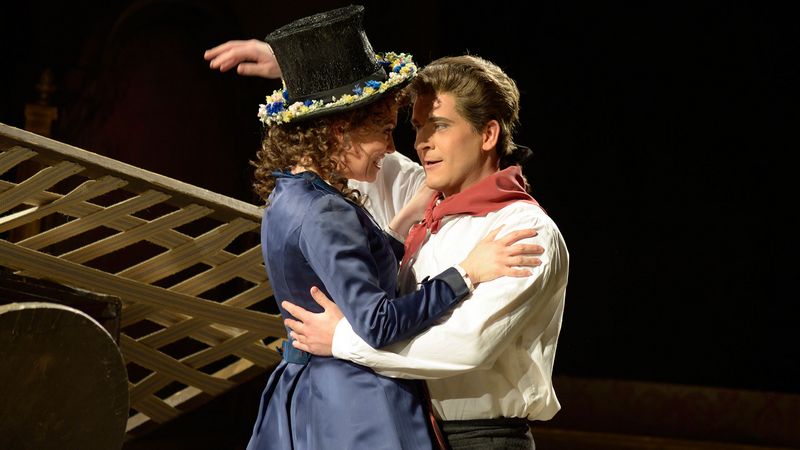Le nozze di Figaro
Wolfgang Amadeus Mozart (1756 – 1791)
In the historicising sets by Herbert Wernicke, Götz Friedrich's production is still, after 35 years, an ideal platform for the ensemble of the house to present their joy of playing and singing culture ... Conductor: Corrado Rovaris / Giulio Cilona; Director: Götz Friedrich; With Thomas Lehman, Maria Motolygina, Elisa Verzier, Meechot Marrero, Artur Garbas a.o.
About the workFigaro and Susanna, servants at the court of Count Almaviva, are soon to marry and are furnishing the lodgings that they’ve been allotted in the Count’s castle. Figaro is gleefully taking measurements for the conjugal bed, but Susanna is worried: the Count’s passion for his wife has long since cooled, meaning that he might invoke his “right to the first night”. Figaro is determined that it won’t come to that, but another issue is plaguing him too: before lending him a sum of money, Marcellina, the Count’s housekeeper had wrung from him a pledge to marry her if he defaulted, and that time has now come. To complicate matters, in the Countess’s chambers Susanna is asked by the Count’s page, Cherubino, to put in a word for him because he’s been fired for a dalliance with Barbarina, the Count’s gardener’s daughter. The Count enters suddenly and tries to negotiate a tryst with Susanna, forcing Cherubino to hide, whereupon Basilio the music teacher arrives, and finally Figaro. The situation heats up and the only person to keep a handle on things is Susanna.
The Count reluctantly agrees not to put a spanner in the marital works, while still secretly hoping to have his way with Susanna. The Countess is bemoaning her husband’s lack of affection. Figaro and Susanna suggest a scheme that might help her: they will incite him to jealousy and then embarrass him into the bargain. But since everyone is pulling in different directions, the plan goes awry, endangering the youngsters’ love affair as well as the marriage of the Count and Countess. Following a string of incidents and a chaotic evening gathering, all are reconciled, chastened and – perhaps – a little wiser.
THE MARRIAGE OF FIGARO - Mozart’s first collaboration with Lorenzo da Ponte, who would also serve as librettist for DON GIOVANNI and COSÌ FAN TUTTE – is based on “La folle journée, ou Le Marriage de Figaro” [1783/84] by Pierre Augustin Caron de Beaumarchais, a French comedy, controversial and topical in equal measure. A comedy about two betrothed domestic servants who stand up to their employers and prevail in the end was a shock to people of gentle birth in the pre-Revolutionary Paris of the early 1780s. Astonishing, then, that da Ponte managed to have the opera staged at the Viennese court, which had zero interest in hosting such an insolent work at a local venue. Mozart and da Ponte tinkered with the storyline, took the edge off the threat posed by the characters to society and moulded the dramaturgy to fit the parameters of musical theatre, albeit without drawing the teeth of the work it was based on. The result was one of the supreme achievements in the history of comic opera. The human nature depicted is timeless, the story clever and packed with unexpected twists. And the overwhelming richness of the score enlivens each individual character in their self-perception and their relationship to the others.
About the productionGötz Friedrich’s production sticks to Mozart’s directions, demonstrating his psychological acuity and his sense of the absurd and the comic as the action spirals to a head. He also reveals his grasp of human imperfection, which Mozart, in a veiled manner but always with critical analysis, brings home to audiences.
Werkinfo:
Commedia per musica in 4 actsLibretto by Lorenzo da PonteFirst performed on 1st May, 1786 in ViennaPremiered at the Deutsche Oper Berlin on 14th December, 1978
recommended from 13 years


